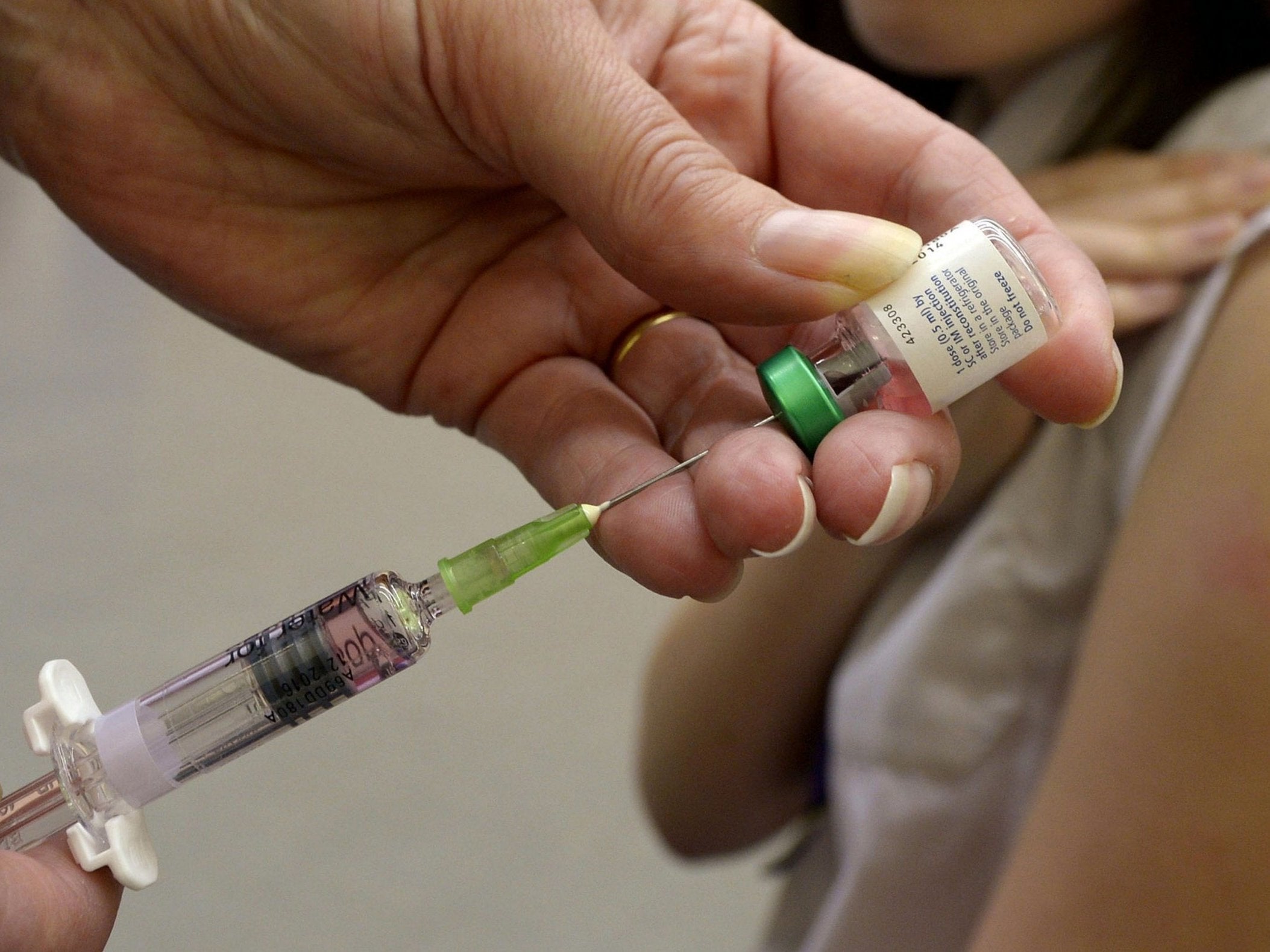Bad medicine, bad politics and bad journalism are all to blame for the surge in measles
This was a preventable outbreak: now public confidence in the MMR vaccination has to be rebuilt

The huge surge in measles cases in Europe is no medical mystery. The cause is simple: too few children are being immunised. Vaccination rates are falling below the critical 95 per cent rate that helps to ensure that any outbreak of this highly contagious agent remains localised. As a result, pockets of infection are spreading rapidly across borders. Children are suffering and dying needlessly.
And we could see it coming. The scare over the MMR (measles, mumps and rubella) vaccination and a supposed link to autism caused much of the loss of coverage.
As has been now well established, the “evidence” presented in 1998 in a paper in The Lancet by Andrew Wakefield, a gastroenterologist at the Royal Free Hospital in London, has long since been discredited. The paper has been retracted and Mr Wakefield was struck off the medical register for dishonesty and irresponsibility.
The damage was done. It would have been bad enough, but worse followed. Populist political movements took it upon themselves to usurp expert medical advice in the name of “parent power”. Immunisation itself was viewed with indiscriminate alarm, concerns exploited to political gain by those who should know better. Predictably enough, the Five Star Movement in Italy and Marine Le Pen’s Front National in France pandered to natural parental concerns, and with lamentable results.
The outbreak is not, then, comparable to, say, bird flu or, further back, the emergence of Aids, strange new phenomena that were difficult to understand or contain. We could see it coming, ever since the MMR scare first broke. Measles had been wiped out in many European states. But now, because of its highly infectious nature, cases spread easily across borders and attack societies rich and poor. Thus, the World Health Organisation has reclassified the measles status of Germany and Russia “endemic”. France and Italy are affected just as Serbia and Ukraine are.
The public authorities, then, have to rebuild public confidence in vaccination that they spent decades, if not centuries, establishing, ever since Edward Jenner in the 1790s noticed how milkmaids were immune to smallpox.
That effort, and indeed much other medical progress, will be made all the more challenging by politicians capitalising on emotional responses to particularly difficult cases. The most traumatic and graphic example in recent months was the case of the terminally ill baby Alfie Evans, which attracted the attention of Donald Trump. For the president it was not simply a matter of humanitarian concern, if misguided; it was weaponised as an example of how “socialised” medicine delighted in torturing infants under Britain’s National Health Service, the rough equivalent of Obamacare.
Responsible parents will continue to ensure their children are vaccinated, but will be concerned too that there may be crucial months when they are exposed to other children whose parents have not been so cautious. Some may be infected before they have a chance to be inoculated. There will, in other words, be much more human misery and suffering as a direct result both of bad medicine and bad politics. Bad journalism too, candidly, from the decision taken by The Lancet to publish the original article to the sensationalist and misleading reporting, “investigations” and “campaigns” conducted afterwards in the media.
Join our commenting forum
Join thought-provoking conversations, follow other Independent readers and see their replies
Comments